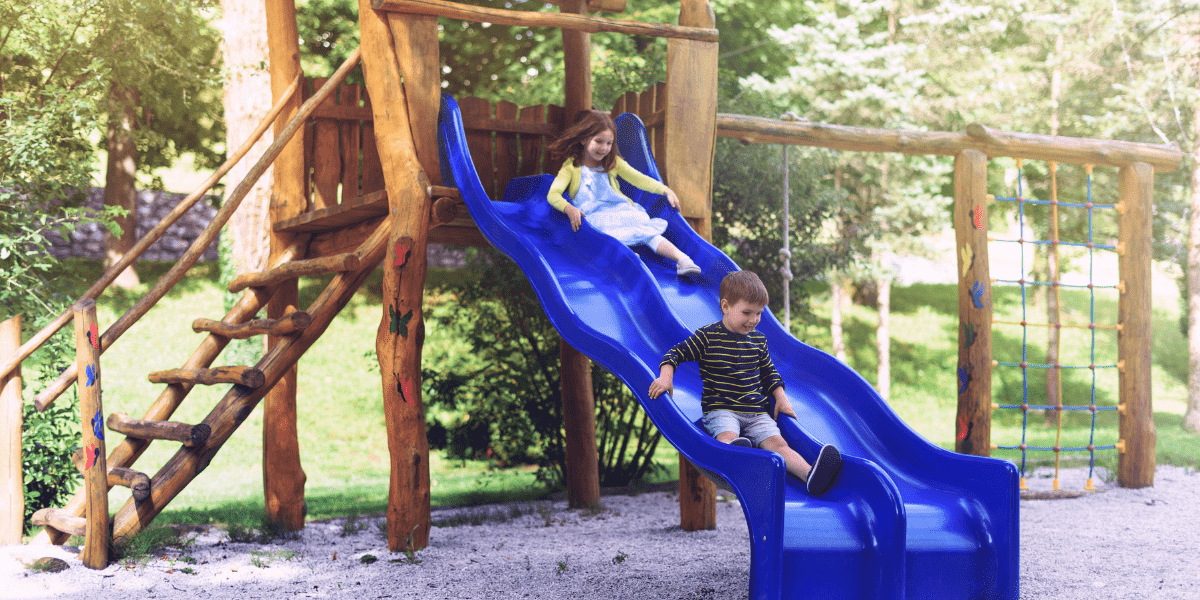What Is the Summer Slide and How Can You Help Your Child Avoid It?
Summer vacation is an exciting time for kids: school’s out, the sun is shining, and there are endless hours of playtime with friends ahead!
But, while play is certainly an important part of childhood, all of that freedom from school tasks can come at a cost.
When kids go back to school in the fall without touching on the things they learned during the school year, they can struggle to remember what they learned and have trouble moving on to new information.
Keep reading to learn more about this “summer slide” and how you can help your child be better prepared for school next year.
What Is the Summer Slide?
The summer slide, or summer learning loss, is when kids forget what was taught to them during the previous school year. This can cause them to fall behind their peers, damaging their chances for academic success.
A 1996 study was one of the first to examine this effect. It showed that kids lose significant knowledge in math and reading over summer vacation, which can then snowball into greater skill loss each school year.
Another study in 2020 looked at summer learning loss among 3rd through 5th graders. It found that during summer break, students lost an average of 20 percent of the reading skills and 27 percent of the math skills they gained during the school year!
Younger children — especially those in kindergarten, first, and second grades — are more prone to learning loss than older kids because they’re at a crucial stage of development. (Learning accelerates early in life and then plateaus as kids get older.) They are especially susceptible to losing reading skills such as letter knowledge and word reading, as well as math skills like addition and subtraction, if they aren’t practicing them regularly.
Summer learning loss leads to kids starting off the next school year behind, as they have to review the previous year’s skills before moving on to the new information their peers are learning.
This can leave them trying to catch up to their peers and struggling in school for years to come.
Help Your Child Maintain Momentum This Summer With These Tips
To help your child avoid the summer slide, have them spend a little time every day in summer learning. They don’t need to spend hours per day to see a difference — as little as 20-30 minutes each day will do.
Incorporate some or all of the following into your child’s summer learning time to help them retain what they learned during the school year:
- Read, read, read! Reading books is the number one thing a child should do to prevent summer learning loss. A big rule of thumb here is that if you let your child read books they enjoy, they’ll be much more likely to stick with it. Make sure your child has access to a wide variety of books they enjoy (and can comprehend) this summer.
- Write every day. Encourage your child to write something every day — postcards to friends or family, stories, poems, journal entries, etc. Any amount of daily writing will help them improve their writing and penmanship skills. For younger kids who aren’t writing yet, have them tell you a story or a message to a loved one while you write it down, and have them practice their letters using a whiteboard or chalkboard.
- Incorporate math into daily activities. Have your child read out numbers on signs, count change, and read the clock. Or bake with them to learn about fractions and measuring. For older children, work on memorizing multiplication facts — once they have multiplication down, other math skills like division, fractions, and equations get much easier.
- Boost problem-solving skills with games and puzzles. On days when there is more down time, have children work on puzzles, Sudoku, crosswords, word searches, or other problem-solving games. Games help kids boost problem-solving and other cognitive skills while having a little fun!
- Get out! Get out of the house to visit a museum, planetarium, or historic site. Or simply bring books to the park to read together. Shaking up the day-to-day routine with new activities will help stimulate your child’s brain and promote learning.
- Learn a new skill. Taking on a new skill during the summer can help keep your child’s mind engaged in learning. Choose from basic life skills like shoe tying or jacket zippering for young children, or cooking or cursive writing for older children. Or, if your child has a specific area of interest, choose a related skill, such as coding, drawing, learning a musical instrument, or mastering a new skill in the sport of their choice.
- Imaginative play. Yes, playtime can and should be part of your child’s summer learning! Imaginative play helps children expand their vocabularies, experiment with new ideas, and think creatively. These skills stimulate the brain and help children stay excited about learning new things.
We know that summer can be full of activities already, so don’t feel like you need to incorporate all of these concepts at once. Pick a few based on what you think your child needs most, and incorporate them as you can. Doing something is better than doing nothing — even one activity will help your child retain more of what they learned during the school year.
And if your kids are resistant to summer learning time, consider offering an incentive for completing their tasks without complaints, such as extra screen time or another perk.
Help Your Child Avoid the Summer Slide With Brain Training
Brain training with LearningRx Raleigh can help your child learn and retain what they’ve learned more effectively.
Brain training helps strengthen the cognitive skills our brains use to think, read, learn, remember, reason, and pay attention. If even one of these skills is weak, grasping, retaining, and using incoming information becomes more difficult.







